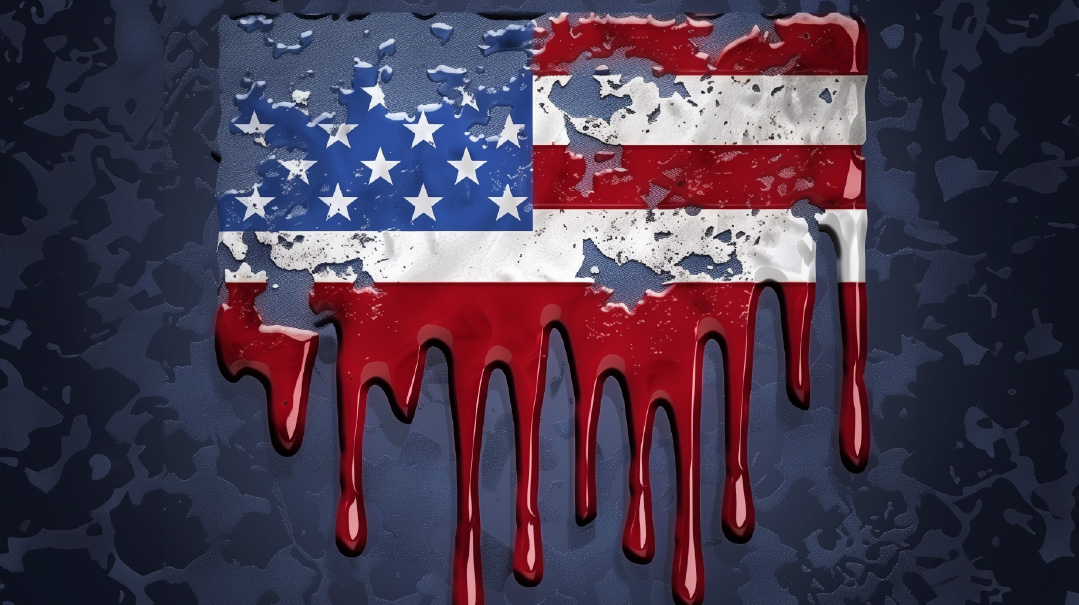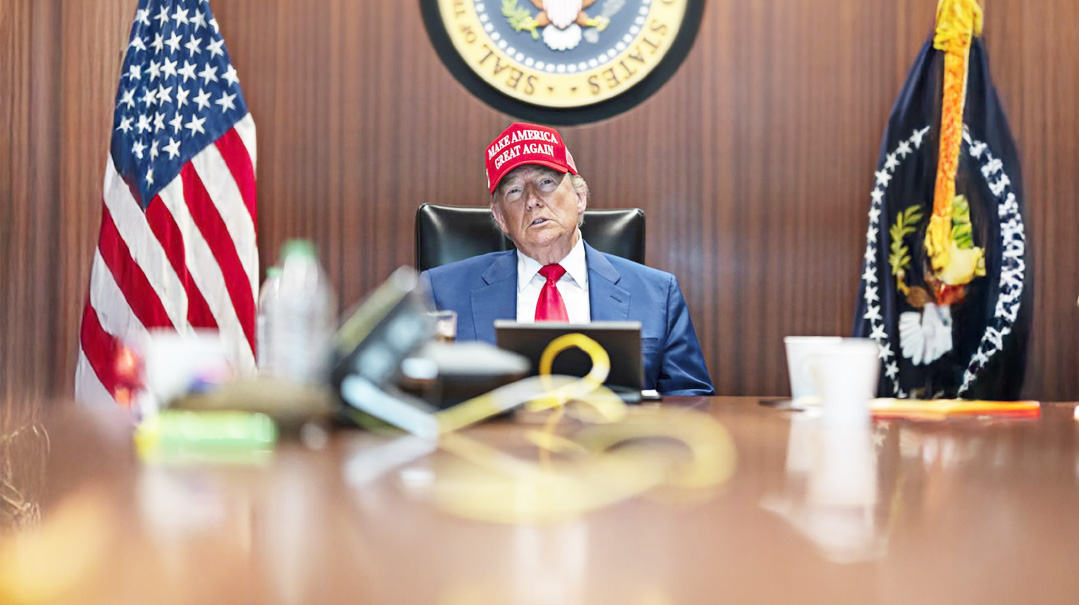A Simmering Summer of Disruption

Five major storylines could carry the day in the six months that remain before the November 5 election

The bitterly contested 2024 American presidential campaign hasn’t yet reached a boiling point, but it’s already raising temperatures worldwide, with pitfalls for both President Biden and former president Trump. Five major storylines could carry the day in the six months that remain before the November 5 election that could determine who wins and who loses and what challenges will await them after Inauguration Day on January 20, 2025.
1. Escalation in the Middle East
There is nothing like a war involving Israel to stir voter’s emotions.
While conventional wisdom says foreign policy is not a high priority for American voters, a recent Associated Press–National Opinion Research Center (NORC) at the University of Chicago showed that foreign policy had become voters’ number-two concern for 2024, after the economy. Some of this concern can be laid at the doorstep of the Russia-Ukraine war and Chinese belligerence, but it also became a pocketbook issue when the Biden administration proposed spending $100 billion in taxpayer funds on Israel, Ukraine, and Taiwan.
With the risk of war spreading, which of the two major candidates would help Americans sleep better at night? A November 2023 CBS/YouGov poll showed that 47% of the respondents thought Trump’s policies “would increase peace and stability” while just 31% said the same about Biden.
I’ve critiqued Trump in this column for his oft-repeated statements that “none of this would have happened if I were president.” Still, as is often the case, there is a method to his madness, and according to this poll, his message is sinking in and his credibility is rising.
The longer the wars last, or escalate, the more likely Trump is to benefit from the turmoil.
2. Bad Actors with Bad Intentions
There is no lack of threats from parties interested in wreaking havoc on America, whose reputation as the world’s most stable democracy has eroded. The Department of Homeland Security (DHS) 2024 threat assessment noted that after 9/11, the biggest domestic risk from terrorism comes from “small cells who independently plot attacks to advance a range of ideologies and political objectives.”
There is also no lack of bad actors with skin in this game, including groups that would like to incite a racial war in America. The DHS singled out Russia, China, and — guess who — Iran, who are plotting to utilize AI-generated fake news and misinformation to undermine US stability. DHS warned that “violence or threats could be directed at government officials, voters, and elections‑related personnel and infrastructure, including polling places, and ballot drop-box locations.”
Since we’re on the topic, I’d like to share some advice from RANE, a global risk intelligence platform founded by David Lawrence, a former managing director at Goldman Sachs. At a RANE seminar held toward the end of 2023, panelists warned that companies or organizations with leaders who weigh in publicly or on social media on polarizing issues risk drawing “adverse attention and threats to the organization and/or to themselves as potential targets.”
So be careful what you say and who you say it to. It could come back to haunt you.
3. Trump’s Trials and Travails
Donald Trump’s criminal trial in New York will be well underway by the time you read this, and it could last until the end of June. Prosecutors allege Trump falsified business records to commit or conceal a hush money payment connected to his 2016 campaign. Trump will be required to attend his trial on most days unless his attorneys can find a novel way to exempt him. This will crimp Trump’s time on the campaign trail and will generate more negative than positive publicity. Trump also faces charges in three other federal criminal cases, all highly unlikely to go to trial before the election.
What happens if the New York jury convicts Trump at the end of June — just two weeks before the Republican Party’s nominating convention in Milwaukee? Trump would appeal the verdict, dragging out the proceedings long past Election Day. CNN interviewed Frank Bowman, a law professor emeritus at the University of Missouri and an expert on criminal law and the Constitution. Bowman told CNN that theoretically, the Constitution does not bar a convicted felon — even one in prison — from serving as president. Bowman also outlined an unlikely scenario in which Trump was convicted in one of his federal trials, became president, and then either pardoned himself or asked the Bureau of Prisons to allow him to serve his prison term at the White House.
Stranger things than that have never happened, but these are not normal times.
4. RFK Makes Biden Pay
It’s no great secret that many card-carrying Democrats and Republicans would have been ecstatic to have another viable choice aside from Biden and Trump. However, it’s virtually impossible to unseat an incumbent president or defeat a former president who won more than 74 million votes just four years ago. Despite the long odds, the maverick candidacy of Robert F. Kennedy Jr. has the potential to tilt the race in one direction or another, provided he can get his name on the ballot in enough swing states before each state’s deadline.
Biden and Trump are running neck-and-neck in a cutthroat campaign. When you include a trio of “third-party candidates,” including Cornel West and Jill Stein, RFK Jr. wins 9.3% of the popular vote, with West and Stein pulling down 3% combined in the Real Clear Politics Average Polls.
For a numbers wonk like me, the race gets more fascinating if you compare polls in two crucial swing states — Georgia and Michigan. According to the online pollster Race to the WH, Trump leads Biden by 4.3% in Georgia and by 2.1% in Michigan. But if you throw the trio into the mix, Trump’s lead over Biden grows by 1% in both hotly contested states. Trump and Biden do their best to belittle RFK, but privately, leading Democrats are working overtime to keep RFK off the ballot out of fear that he will cost Biden the election in the Electoral College.
5. Wild in the Chicago Streets
A month ago, I noted that senior Democratic Party strategist James Carville warned that President Biden’s support for Israel, such as it is, could lead to violent anti-Biden demonstrations at the party’s August convention in Chicago. This would bring back bad memories for Democrats, who will never forget the anti-Vietnam War riots that disrupted the party’s convention in that same Chicago during the party’s 1968 nominating convention.
The riots and the police response were nationally televised in every living room in America. When the convention ended, David Broder of the Washington Post wrote: “The Democratic Party woke up today with the worst hangover in a century,” adding that their presidential nominee, Hubert Humphrey, resembled “the general of a defeated and mutinous army.”
The anti-war demonstrations backfired badly on the Democrats. A Gallup Poll survey immediately after the convention showed Republican nominee Richard Nixon turning a two-point deficit in July into a double-digit lead over Humphrey. By a 47% to 28% margin, Americans told the pollster that Nixon would do a better job handling the Vietnam War than Humphrey. That year also featured a three-way race, and even with Alabama governor George Wallace taking more votes from Nixon than Humphrey, Nixon won the election with 301 electoral votes.
Will history repeat itself in Chicago and in the only poll that counts on November 5?
(Originally featured in Mishpacha, Issue 1009)
Oops! We could not locate your form.







